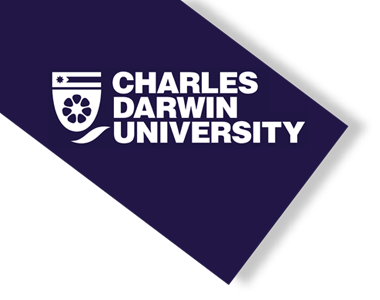Bachelor of Pharmacy
Charles Darwin University
About
Pharmacists are healthcare professionals with in-depth skills and knowledge in using medicine to ensure people achieve optimal health outcomes.
As part of the healthcare team, pharmacists also provide information and recommendations to doctors, nurses and other healthcare professionals regarding the selection of the best medicine, dosages and how to manage side effects.
Bachelor of Pharmacy at CDU is a four-year degree that is accredited by the Australian Pharmacy Council.
You will develop your knowledge and skills in the following areas:
Problem-solving and personal and professional communication skills Pharmacy practice including experiential learning in real pharmacies (application of knowledge and skills to help people get the best outcomes from medicines) The ability to develop an individual healthcare plan for patients with complex conditions, focusing on self-management Nationally recognised Mental Health First Aid Australia certificate Ability to administer injections including vaccinations These skills are underpinned by an in-depth understanding of the following sciences:
Chemistry and Medicinal Chemistry (structure of medicines) Anatomy and Physiology (how the body grows) Biochemistry and Genomics (how the body grow) Pharmacology and Pharmacotherapeutics (how medicines work in the body) Pharmaceutics (designing and making medicines) Microbiology (how the bugs grow in the body) The CDU Pharmacy course has an emphasis on Indigenous health, as well as practising pharmacy in challenging environments, for example in rural and remote communities.
You will have opportunities to practice your pharmacy and professional counselling skills in urban, rural and remote settings.You can undertake your placements in the community and/or hospital (pending availability) pharmacies, or the Aboriginal Medical Services.
In addition, there are also Interprofessional Learning (IPL) opportunities with the nursing students from CDU, medical students from the Flinders University Northern Territory Medical Program, and Aboriginal and Torres Strait Islander Primary Health Care Practitioners (at the Bachelor Institute).
If you wish to strengthen your application for enrolment, we encourage you to submit an optional supporting statement.
The supporting statement must be no longer than one page and should explain:
why you want to study pharmacy and why you are suitable for entry into Bachelor of Pharmacy at Charles Darwin University.
Telephone interviews are offered from your supporting statement.
Send the supporting statement to pharmacy@cdu.edu.au.
Structure
Common (2 units) - 20
Common units totalling 20 credit points as detailed below:
CUC107
CUC106
Select
Common Units
Core(28 units) - 280
Compulsory core units totalling 280 credit points from units detailed below:
SBI171
SCH101
PHA103
SBI172
PHA211
SBI173
SCH102
SBI245
MLS245
PHA214
PHA210
PHA212
SBI209
PHA213
PHA311
PHA303
PHA310
PHA302
PHA405
PHA306
PHA307
PHA312
PHA406
PHA403
PHA411
PHA407
PHA408
PHA410
(new unit title from 2016)
HSC318
(replaces PHA304 from 2012) (new title from 2015)
Specialist Electives(0 units) - 0
There are no specialist elective units for this course
Electives(2 units) - 20
Units totalling 20 credit points selected from any undergraduate units offered by the University. Students may wish to consider Business units.
- 320
Total Credit Points
Entry requirements
Admission requirements are met by one of the following: Successful completion of the Northern Territory Certificate of Education and Training (or equivalent) and the awarding of an Australian Tertiary Admissions Rank (ATAR) of at least 80*. Successful completion of a national qualification at Certificate IV level or higher. Successful completion of at least 0.5 year of full-time study (or equivalent) of a higher education degree/diploma with a GPA of 4 or higher. Overseas secondary or tertiary qualifications considered equivalent to the above Australian qualifications. Attainment of a STAT Multiple Choice score of 162 (or a score of 160 if prior to May 2010). Successful completion of the Tertiary Enabling Program, the ACIKE Preparation for Tertiary Success courses, or other recognised tertiary preparation course. * After any applicable adjustment factors have been applied.
Institution
